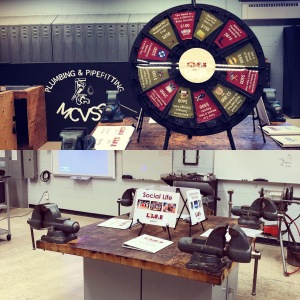Here are some important questions that will help you get to know your finances a little better, and plan ahead for your financial future.
1. Are you regularly surprised by running out of money?
It’s one thing for money to be tight, but if you are repeatedly coming up short on being able to pay your bills or by overdrafting your checking account, it is a sign that you are not in control of your budget. Step one is formulating a budget that lets you live within your means, and step two is putting controls in place to make sure you follow that budget.
2. Do you save up for big purchases or rely mostly on credit?
Borrowing may be necessary for major purchases like a house or a car. But if you find yourself making routine purchases on a credit card, you are making those items way more expensive than they need to be by adding interest to the cost. The more you can wait and save up to buy things, the more you will be able to afford.
3. Have you formulated a retirement savings plan?
People tend to assume that buying a house is the biggest financial decision they will ever make, but chances are you will need even more money to retire on than it costs to buy a house. It takes years of effort to build up enough of a nest egg, and that effort starts with figuring out how you are going to save that money.
Need help with retirement planning or investments? To set up a complimentary consultation with the Investment & Retirement Center located at First Financial Federal Credit Union to discuss your savings goals, contact us at 732.312.1500, email mary.laferriere@lpl.com or maureen.mcgreevy@lpl.com, or stop in to see us!*
4. Is your retirement savings on track?
It may be hard to feel a sense of urgency about something that may be 20 or 30 years in the future, but if you wait until retirement saving becomes urgent, you will have left it too late. Start holding yourself accountable now, so you won’t have to try playing catch up in the last few years of your career.
5. If you have investments, how well are they performing?
People tend to focus on the big winners and losers in their portfolios, but what matters more is how everything has performed in aggregate. Performance measurement should focus not just on how well you have done, but whether your investments have behaved appropriately for the prevailing market conditions.
6. What is your credit score?
Banks, insurance companies and even prospective employers are going to know this about you, so you should probably know your credit score yourself. Check your credit report for free annually by visiting annualcreditreport.com.
7. What could you do to improve your credit score?
If your credit score is less than perfect, it could cost you in the form of higher interest rates, or even limit your ability to get credit. Identify what you need to do to address any problems so your score will improve over time.
8. What would happen to your finances if you were out of work for 6 months?
It may seem tough to build up that big of a cushion, but the median duration of unemployment peaked at nearly 26 weeks in the aftermath of the Great Recession. Knowing how close to the edge a period of joblessness would put you, is a good test of your financial wellness.
Some of these are questions that people just neglect to ask. Others are questions they are afraid to ask, because they might not like the answers. However, it’s better to ask these questions when you have the time and opportunity to deal with them constructively and create a financial game plan for your future.
*Securities and advisory services are offered through LPL Financial (LPL), a registered investment advisor and broker/dealer (member FINRA/SIPC). Insurance products are offered through LPL or its licensed affiliates. First Financial Federal Credit Union (FFFCU) and The Investment & Retirement Center are not registered as a broker/dealer or investment advisor. Registered representatives of LPL offer products and services using The Investment & Retirement Center, and may also be employees of FFFCU. These products and services are being offered through LPL or its affiliates, which are separate entities from and not affiliates of FFFCU or The Investment & Retirement Center.
Securities and insurance offered through LPL or its affiliates are:
| Not Insured by NCUA or Any Other Government Agency | Not Credit Union Guaranteed | Not Credit Union Deposits or Obligations | May Lose Value |
|---|








